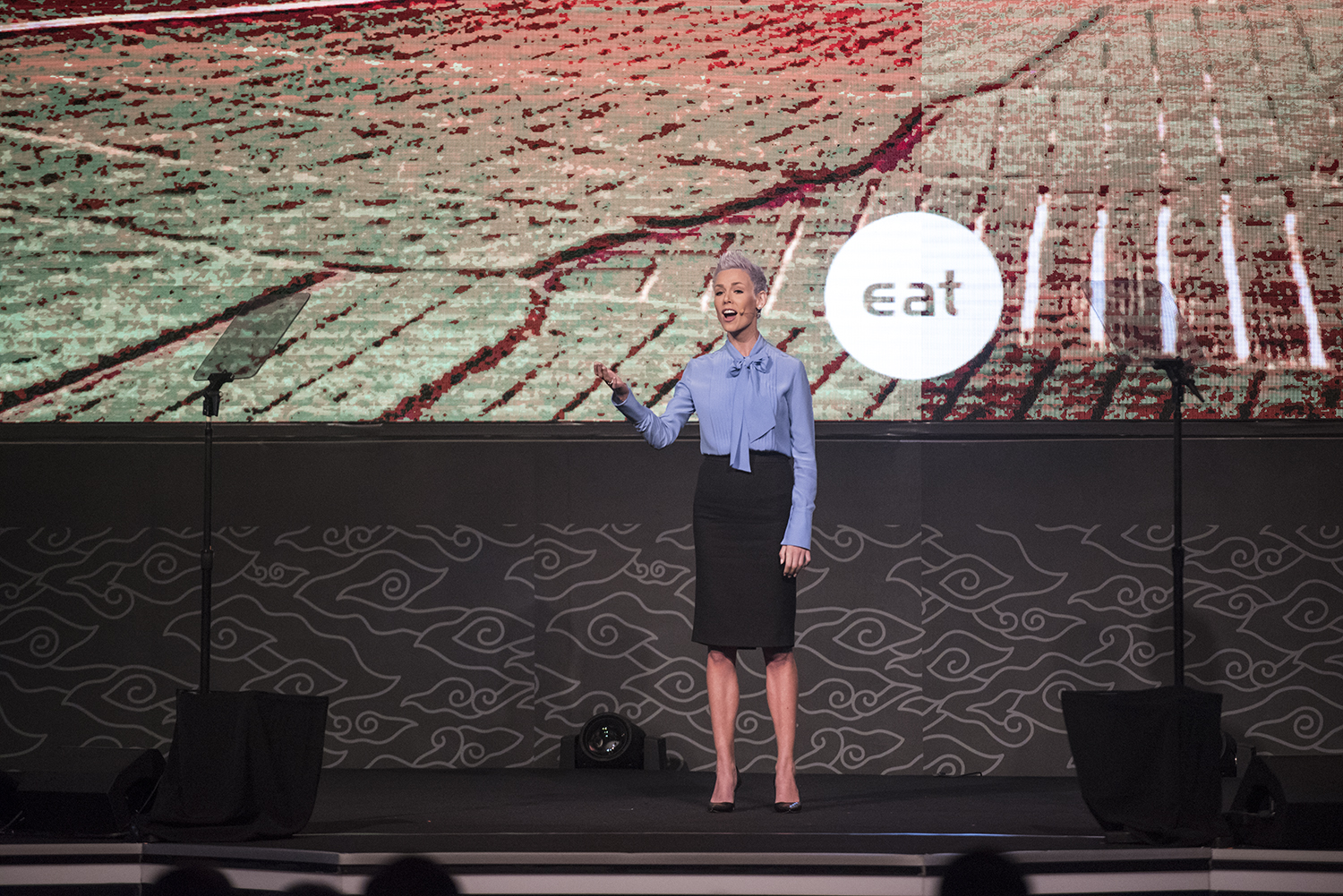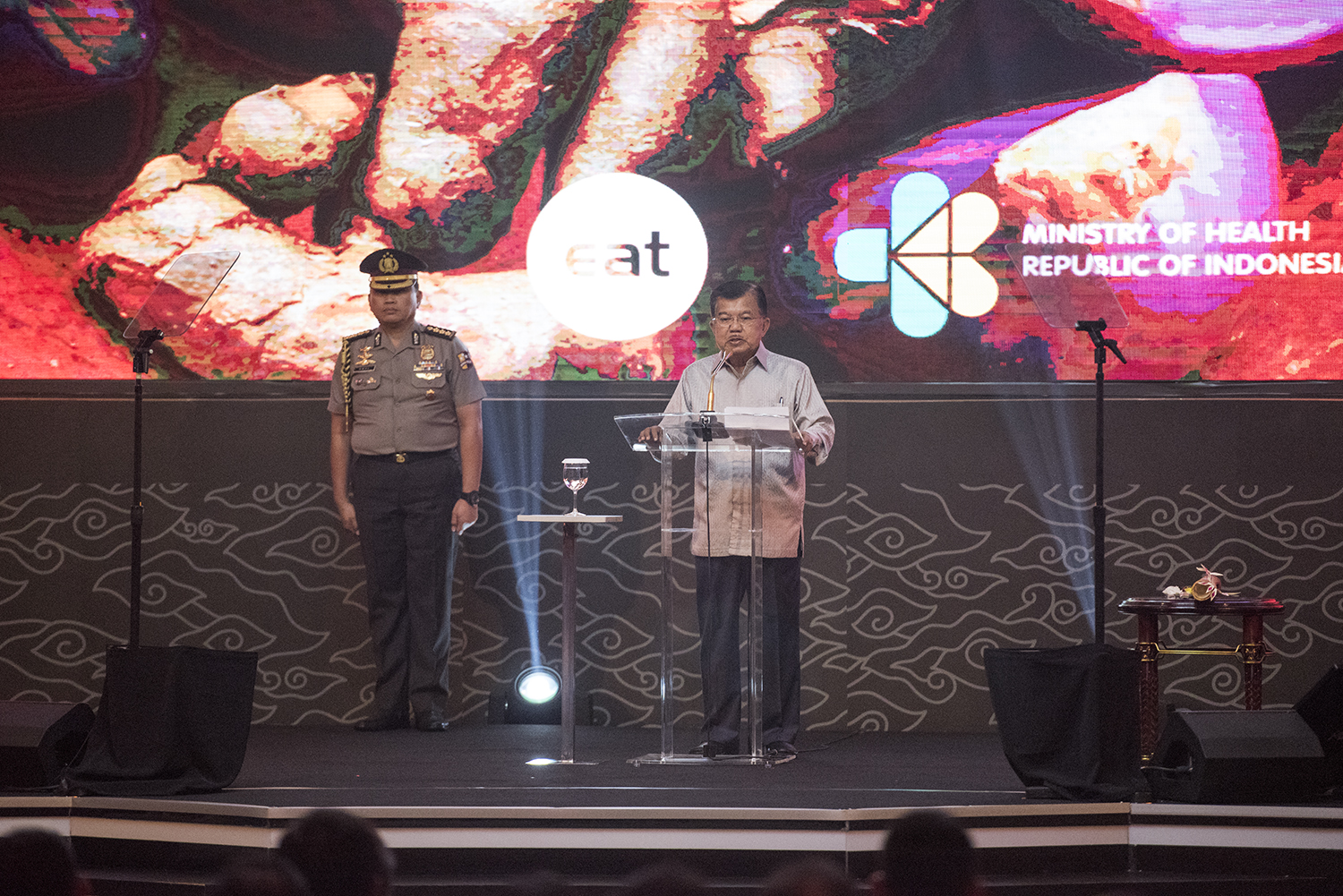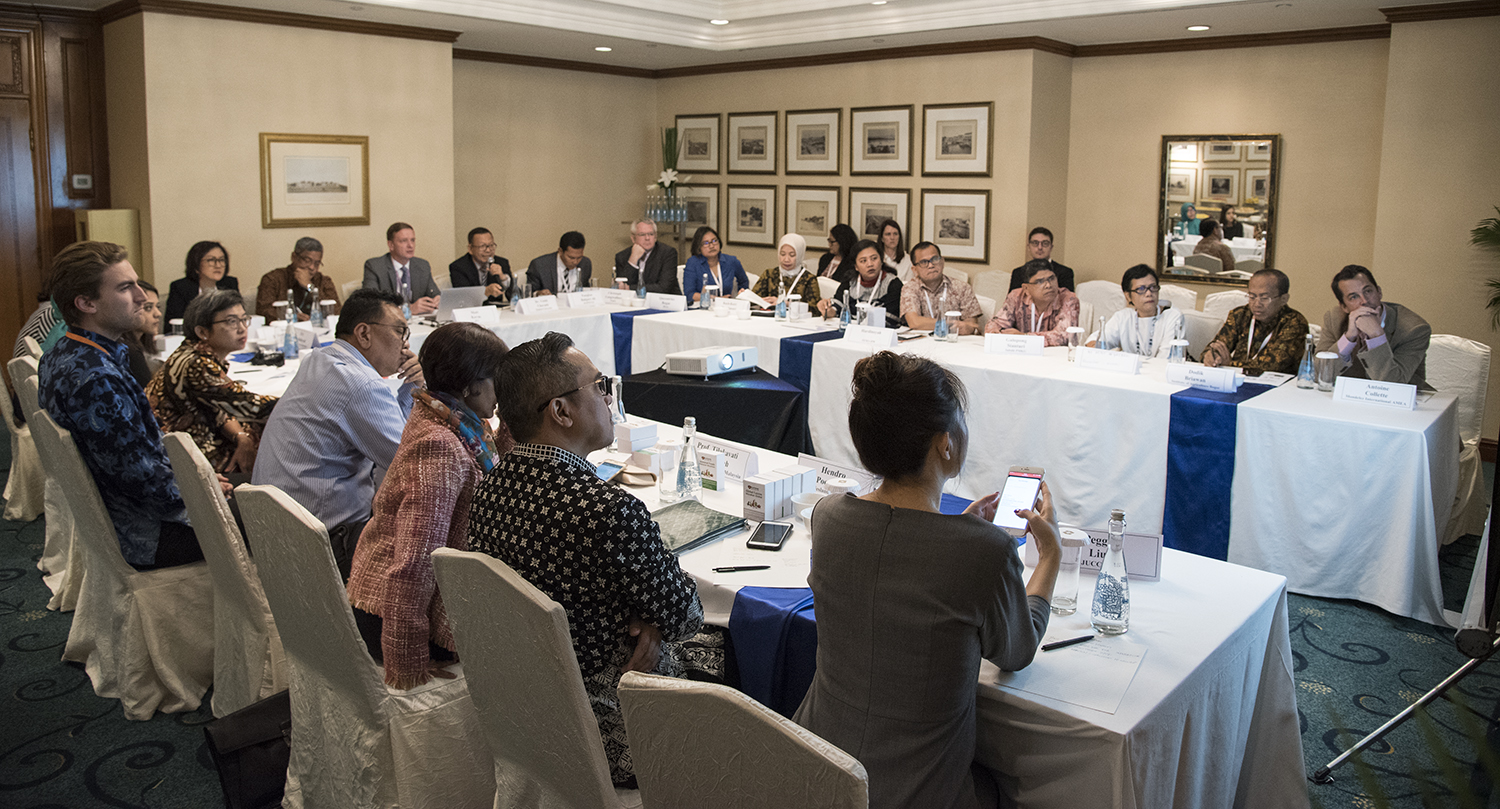
News & Events
Multi-Stakeholder Partnerships to Transform Food Systems for Improved Sustainability, Security and Health in Asia
By Food Industry Asia (FIA)
The inaugural EAT Asia-Pacific Food Forum brought together leading stakeholders from government, industry, academia and civil society to assess the state of food systems, and discuss both innovative and sustainable solutions to improve food security, sustainable use of natural resources, and health and nutrition among populations in Asia. A key message was that strong cooperation among all stakeholders is critical in meeting these goals – including tackling the double burden of malnutrition, which leads to the public health challenges of both stunting and obesity.
As part of its work to improve health and nutrition for the Asian population, Food Industry Asia (FIA) partnered with the EAT Foundation for the Food Forum, which took place 30-31 October in Jakarta, Indonesia.
During the Food Forum, which focused on transforming food systems to meet public health objectives, FIA engaged in conversations around tackling challenges related to the double burden of malnutrition in Asia, and developing innovative solutions to improve child health and nutrition. These multi-stakeholder dialogues included leaders from the United Nations’ Children Fund (UNICEF); the ministries of Health, Agriculture and National Development Planning of the Republic of Indonesia; Nestlé; and the Institute of Nutrition at Mahidol University.

Dr Gunhild Stordalen, Founder and President of the EAT Foundation, gives an opening address on “Fixing the Food System: From Global Visions to Local Opportunities” at the start of the EAT Asia-Pacific Food Forum 2017 on 30 October 2017 in Jakarta, Indonesia.
She added that more integrated knowledge on the links between food, planet and health, as well as clear science-based targets, are needed as the multi-stakeholder approach moves forward. In addition to stating the importance of politicians collaborating across ministries, innovative chefs, and civil society that holds other stakeholders accountable, Dr Stordalen said, “we need private sector – from the multinationals to the local entrepreneurs – to create new products, services and sustainable business models… to help turn all these great efforts and individual champions into one game-changing movement, we must come together and work together.”

H.E. Mr Muhammad Jusuf Kalla, Vice President, Republic of Indonesia, gives an opening address on “Food and Nutritional Security: What it Means for Indonesia and Asia-Pacific” at the start of the EAT Asia-Pacific Food Forum 2017 on 30 October 2017 in Jakarta, Indonesia.
Touching on the high prevalence rate of stunting among children in Indonesia, Mr Kalla referred to “Ini Isi Piringku”, or the “This is What’s on My Plate” – a national campaign focused on dietary take, which advocates for balanced nutrition consumption.

Mr Matt Kovac, Executive Director, Food Industry Asia (FIA) participates in a panel discussion focused on Children Eating Well (CHEW) during the EAT Asia-Pacific Food Forum 2017 on 31 October 2017 in Jakarta, Indonesia. Panellists discussed solutions for improving health and nutrition for and among children.
Mr Matt Kovac, FIA’s Executive Director, participated in a panel discussion moderated by Dr Roland Kupka, Senior Advisor for Micronutrients with UNICEF, which has partnered with the EAT Foundation for the Children Eating Well (CHEW) initiative.
The panel addressed the problem of a lack of diversity in children’s diets, along with the aim to improve food security, nutrition intake and healthy eating habits for and among adolescents. Alongside Mr Kovac, the panellists were Ms Nancy Haselow, Vice President, Asia-Pacific, Helen Keller International; Ms Najelaa Shihab, Founder, Sekolah Cikal; and Dr Fadjar Sumping Tjatur Rasa, Director of Animal Health, Ministry of Agriculture, Republic of Indonesia.
Sharing about the Asia Roundtable on Food Innovation for Improved Nutrition (ARoFIIN) platform, Mr Kovac spoke on FIA’s work in building trust among stakeholders across multiple sectors in Asia, and the importance of multi-stakeholder collaboration to tackle the major public health challenge of obesity, as well as other problems related to malnutrition.
Touching on factors such as consumer lifestyle needs, such as the demand for healthy convenience food in Singapore, Mr Kovac said that it is necessary to look at the broader food system in order to develop solutions that are effective and targeted. He gave the example of food innovation efforts by companies, in areas such as product renovation and fortification.
He added that educating children about healthy eating practices, particularly in an urban environment where a sedentary lifestyle and lack of physical activity is more common, is essential. This could include education for parents, teachers and sports coaches, among other interventions.

Assoc. Professor Visith Chavasit, Institute of Nutrition, Mahidol University, shares key findings from the “Tackling obesity in ASEAN: Prevalence, impact and guidance on interventions” report during the “Innovating Food Systems for Better Health and Nutrition in Asia” competence forum hosted by Food Industry Asia (FIA) during the EAT Asia-Pacific Food Forum 2017 on 31 October 2017 in Jakarta, Indonesia.
Dr Stordalen, in her opening address, had said, “We believe the secret to success is much like the magic of food itself – extraordinary things happen when people are gathered around a table.”

